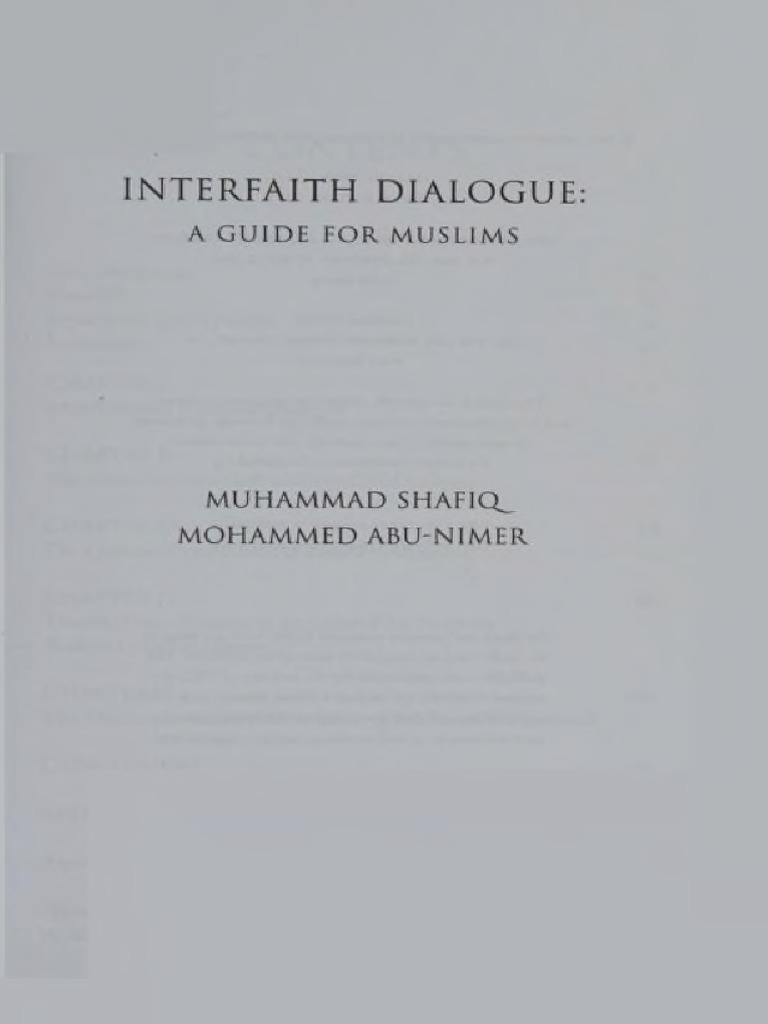The Bahá’í teachings offer a remarkable framework for interfaith understanding and dialogue, articulating the vision of a unified and harmonious world where the boundaries separating religions dissolve. These teachings act as an intricate tapestry, woven from the threads of diverse religious traditions, cultures, and philosophies, presenting a distinct approach to fostering cooperation and mutual respect among different faiths.
At the heart of Bahá’í principles lies the concept of the oneness of humanity. This principle underscores the notion that, while religious practices and beliefs may vary, all people share a common spiritual heritage. The Bahá’í Faith posits that humanity is one family, interconnected and interdependent. Such an understanding can invigorate interfaith dialogues, transforming them into illuminating conversations rather than confrontational exchanges. In this context, each religion is seen not as a separate entity in isolation, but as a unique perspective contributing to the collective understanding of the Divine.
Another hallmark of Bahá’í teachings is the emphasis on the progressive revelation of religious truth. This doctrine posits that God has intentionally sent a succession of prophets and divine educators—such as Moses, Jesus, Muhammad, and Bahá’u’lláh—over the ages. Each of these figures has provided teachings suited to the time and circumstances of their respective societies. The Bahá’í viewpoint affirms that the messages of these prophets are not contradictory; rather, they complement and enhance one another. This perspective invites individuals to view different religions as chapters in a single divine narrative, fostering a profound sense of respect and empathy towards others’ beliefs.
In the realm of interfaith dialogue, the call for spiritual equality among all people shines as a beacon of hope. The Bahá’í teachings assert that every human being possesses the capacity for spiritual understanding and moral development, regardless of their background or creed. This democratization of spirituality enables individuals from divergent faiths to engage in meaningful discourse, learning from each other’s experiences and insights.
Moreover, the Bahá’í emphasis on consultation provides practical guidance for effective interfaith dialogue. Consultation in a Bahá’í context transcends mere discussion; it embodies a spirit of collaboration, where individuals come together to seek truth and understanding with humility and open hearts. This method encourages participants to eschew preconceived notions and listen earnestly to one another, acknowledging the diversity of thought that exists within humanity. When individuals approach interfaith dialogue with this attitude, they cultivate an atmosphere of trust and collective exploration, paving the way for deeper connections and mutual respect.
Furthermore, the Bahá’í commitment to the elimination of prejudices—be they based on race, religion, or gender—reinforces the necessity of a more inclusive world view. Prejudice, akin to an insidious weed in a flourishing garden, stifles growth and obstructs the beauty of diversity. The Bahá’í teachings advocate for proactive measures to promote understanding, tolerance, and acceptance among various faith communities. By addressing biases, Bahá’ís endeavor to create spaces where dialogue can flourish unimpeded, allowing the myriad of voices to be heard and valued.
The global vision espoused by Bahá’ís extends beyond mere harmony among religions. It calls for a transformative approach to community building, where interfaith cooperation becomes a practical reality in addressing pressing social issues. The manifesto of collective responsibility recognizes that, through collaboration, individuals can contribute to societal betterment while simultaneously enriching their own spiritual journeys. This synergy between personal and communal advancement accentuates the transformative power embedded in interfaith dialogue.
Intriguingly, the Bahá’í Faith utilizes metaphors that capture the essence of interfaith understanding. Consider the metaphor of a symphony composed of diverse instruments—each contributing its unique sound to create a harmonious whole. Just as a violin, a flute, and a drum can produce a melodic masterpiece when played together, so too can individuals from various faith backgrounds collaborate to foster a more profound and holistic understanding of spiritual truths. This imagery reflects the Bahá’í belief that the strength of humanity lies in its diversity, advocating for the idea that interfaith dialogue amplifies the beauty of each tradition rather than diminishing its uniqueness.
Moreover, the metaphor of a vast ocean serves to illustrate the concept of unity amidst diversity. Each droplet represents individual belief systems, while the ocean itself embodies the oneness of humanity. The Bahá’í teachings encourage individuals to transcend the boundaries that separate them, recognizing that while the surface may appear diverse, at its deepest level, the ocean is one. This understanding nurtures a spirit of interconnectedness that fosters empathy, compassion, and mutual respect.
In conclusion, the Bahá’í teachings present a compelling narrative for interfaith understanding and dialogue, inviting individuals to transcend divisions and cultivate a collective vision of unity. Through the principles of oneness, progressive revelation, spiritual equality, consultation, and the elimination of prejudice, Bahá’ís lay the groundwork for transformative conversations that transcend mere theological debate. As humanity grapples with complex societal challenges, the Bahá’í commitment to interfaith cooperation serves as a guiding star, illuminating the path towards a more harmonious and unified world. As we engage in this global discourse, let us remember that within our diversity lies the potential for a richer, more profound comprehension of the Divine, ultimately leading to a society marked by peace and understanding.
